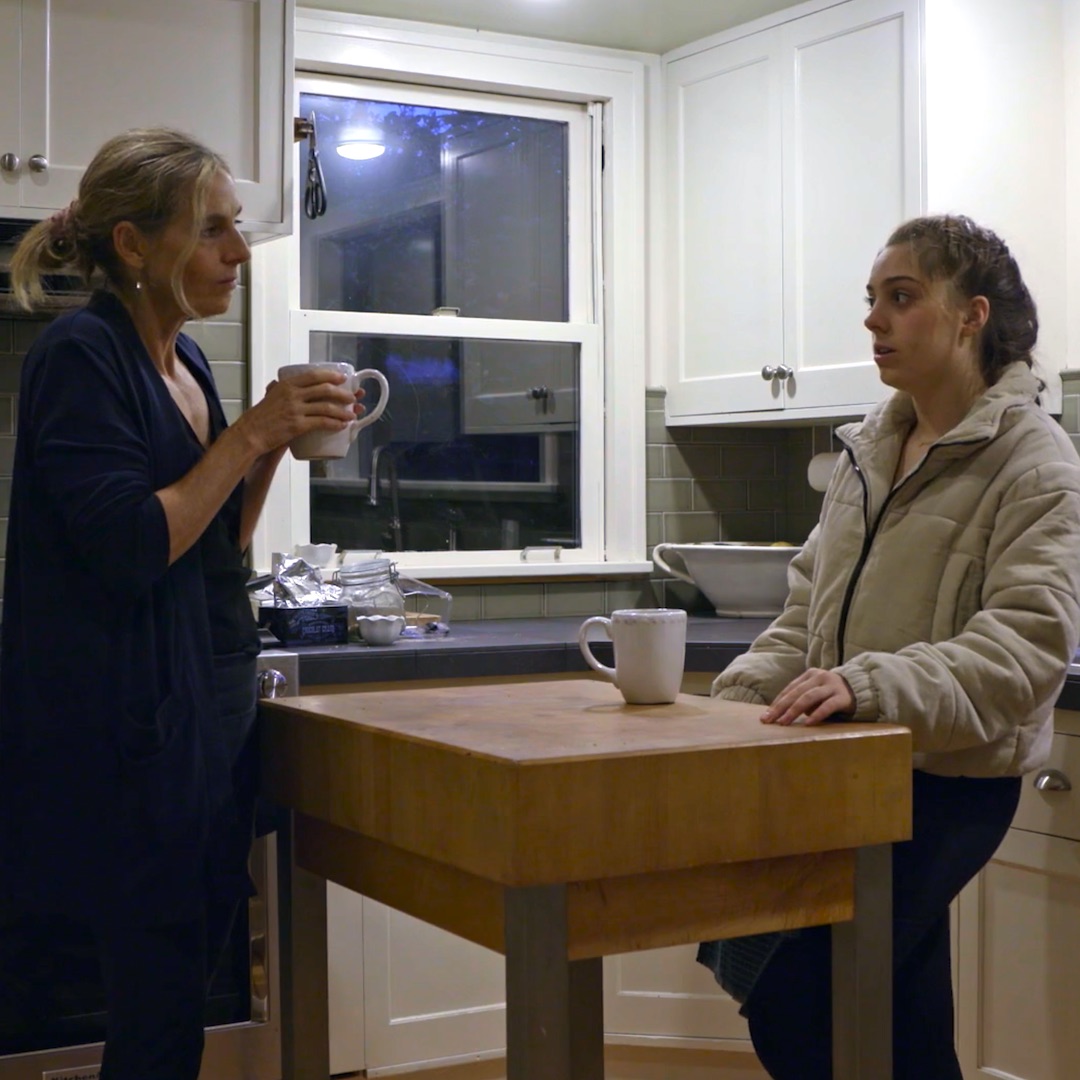


When it comes to relationships, the most important thing one must bring to the table is one’s attention. Our attention is a precious gift that we decide to give or withhold from others.
In an app-development class, 4th to 7th graders were asked to define a problem and then come up with an app that offers a solution. Students often brought up two main issues:
To solve the issue, the kids came up with the idea of a voice-recognition app that would temporarily freeze their parents’ phones whenever the child’s voice is detected. To combat seeing inappropriate content, mostly on TV after bedtime, the kids proposed an app named “Earmuffs App.” The app would sense when a kid came into the room and then would mute swear words and switch the adult content from the TV to a hideable phone or tablet.
So often we want our children to get off of their phones. But what if our kids want us to get off of our phones? I’m sure you’ve heard “mom, mom, mom “ while you’re reading an email, checking a text or reading an article. Our phones have become such a part of our daily lives that we often don’t realize how much we are using them. But, our kids know.
Learn more about showing our movies in your school or community!
Join Screenagers filmmaker Delaney Ruston MD for our latest Podcast

Learn more about our Screen-Free Sleep campaign at the website!
Our movie made for parents and educators of younger kids
Learn more about showing our movies in your school or community!
Learn more about showing our movies in your school or community!
Join Screenagers filmmaker Delaney Ruston MD for our latest Podcast

Learn more about our Screen-Free Sleep campaign at the website!
Our movie made for parents and educators of younger kids
Join Screenagers filmmaker Delaney Ruston MD for our latest Podcast
As we’re about to celebrate 10 years of Screenagers, we want to hear what’s been most helpful and what you’d like to see next.
Please click here to share your thoughts with us in our community survey. It only takes 5–10 minutes, and everyone who completes it will be entered to win one of five $50 Amazon vouchers.
When it comes to relationships, the most important thing one must bring to the table is one’s attention. Our attention is a precious gift that we decide to give or withhold from others.
In an app-development class, 4th to 7th graders were asked to define a problem and then come up with an app that offers a solution. Students often brought up two main issues:
To solve the issue, the kids came up with the idea of a voice-recognition app that would temporarily freeze their parents’ phones whenever the child’s voice is detected. To combat seeing inappropriate content, mostly on TV after bedtime, the kids proposed an app named “Earmuffs App.” The app would sense when a kid came into the room and then would mute swear words and switch the adult content from the TV to a hideable phone or tablet.
So often we want our children to get off of their phones. But what if our kids want us to get off of our phones? I’m sure you’ve heard “mom, mom, mom “ while you’re reading an email, checking a text or reading an article. Our phones have become such a part of our daily lives that we often don’t realize how much we are using them. But, our kids know.
Sign up here to receive the weekly Tech Talk Tuesdays newsletter from Screenagers filmmaker Delaney Ruston MD.
We respect your privacy.
When it comes to relationships, the most important thing one must bring to the table is one’s attention. Our attention is a precious gift that we decide to give or withhold from others.
In an app-development class, 4th to 7th graders were asked to define a problem and then come up with an app that offers a solution. Students often brought up two main issues:
To solve the issue, the kids came up with the idea of a voice-recognition app that would temporarily freeze their parents’ phones whenever the child’s voice is detected. To combat seeing inappropriate content, mostly on TV after bedtime, the kids proposed an app named “Earmuffs App.” The app would sense when a kid came into the room and then would mute swear words and switch the adult content from the TV to a hideable phone or tablet.
So often we want our children to get off of their phones. But what if our kids want us to get off of our phones? I’m sure you’ve heard “mom, mom, mom “ while you’re reading an email, checking a text or reading an article. Our phones have become such a part of our daily lives that we often don’t realize how much we are using them. But, our kids know.

When teens say they hate you, it often feels personal, but it may not truly be about you. Teens sometimes direct their overwhelming feelings toward the safest person in their life. Instead of responding with logic or backing down out of fear, check that your limits are fair, practice self-compassion, and focus on validation rather than correction. If conflict feels stuck, family counseling can help both sides feel heard and understood.
READ MORE >
Thoughtful family tech rules help protect kids’ wellbeing, learning, and sleep while strengthening connection at home. Using the fresh start of a new year, this post shares eight practical tech habits families can discuss and adapt together, including shared social media check-ins, screen time inventories, device-free meals, regular gaming breaks, and keeping phones out of bedrooms at night.
READ MORE >
Psychologist Jean Twenge explains how parental controls can support healthier tech use by protecting sleep, limiting late night device access, and reducing kids’ exposure to content they are not developmentally ready to handle. She discusses why third party parental control tools are often more effective and easier to use than built in options, while acknowledging that no system is perfect. Clear boundaries, combined with technology based limits, can reduce ongoing conflict and make screen time rules easier to enforce.
READ MORE >for more like this, DR. DELANEY RUSTON'S NEW BOOK, PARENTING IN THE SCREEN AGE, IS THE DEFINITIVE GUIDE FOR TODAY’S PARENTS. WITH INSIGHTS ON SCREEN TIME FROM RESEARCHERS, INPUT FROM KIDS & TEENS, THIS BOOK IS PACKED WITH SOLUTIONS FOR HOW TO START AND SUSTAIN PRODUCTIVE FAMILY TALKS ABOUT TECHNOLOGY AND IT’S IMPACT ON OUR MENTAL WELLBEING.
